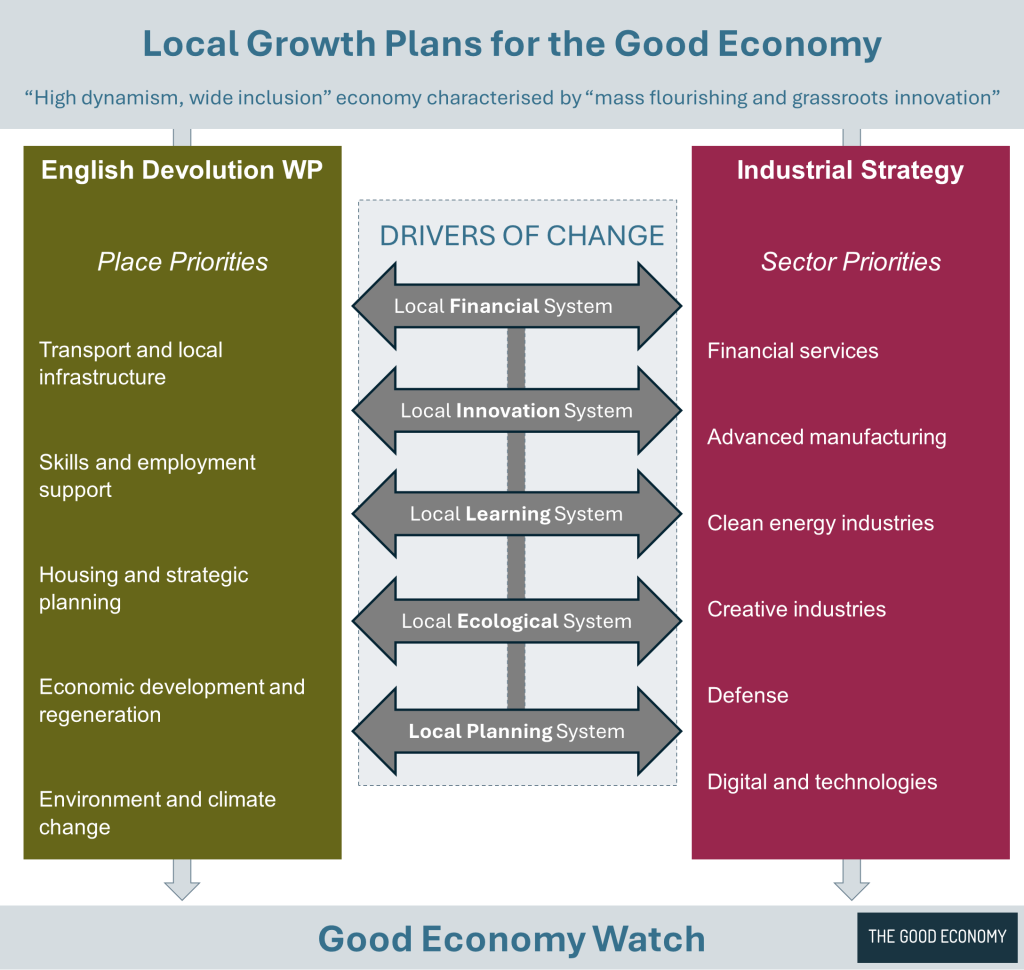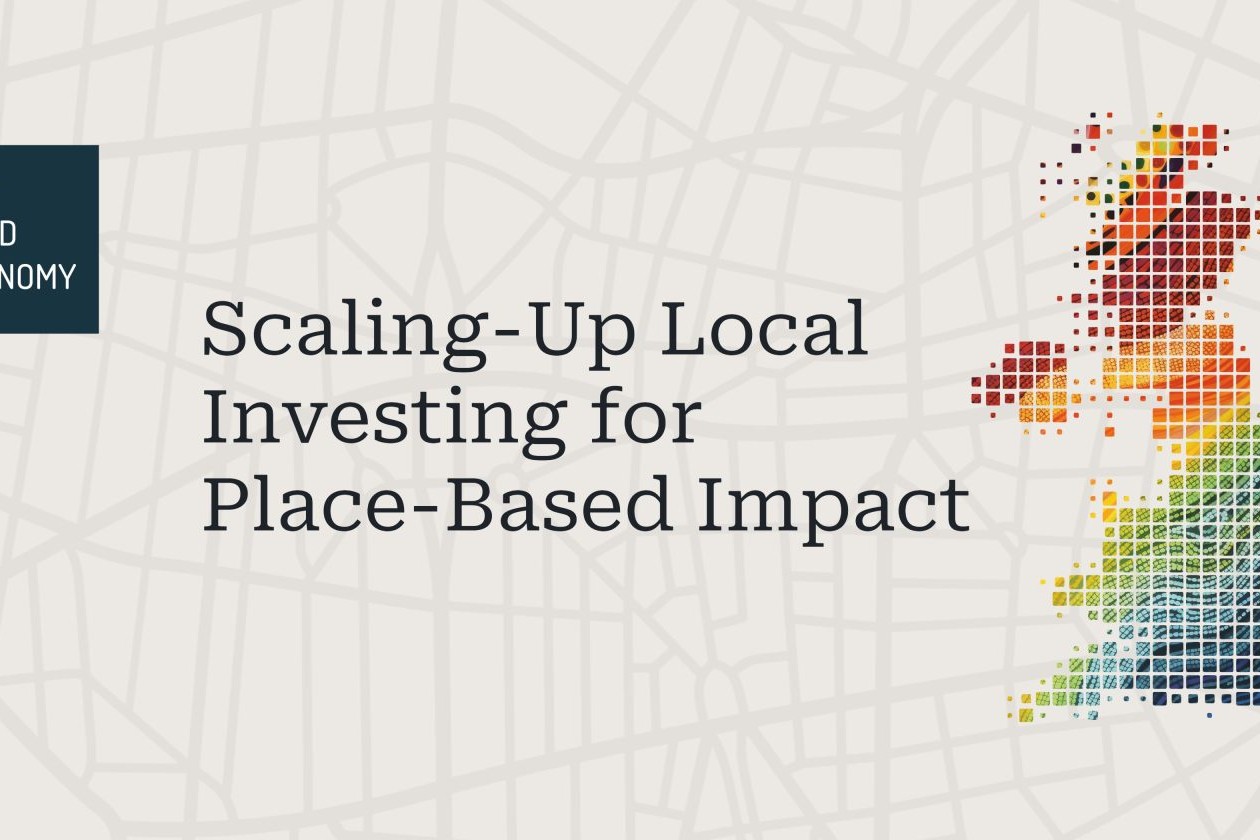Local Growth Plans for The Good Economy
Local Growth Plans (LGPs) are ‘hatching’ across England under the aegis of Strategic Mayoral Authorities. The Government says the Plans will provide the ‘guiding stars’ and ‘cornerstones’ of its place-based approach to inclusive growth. Heightened uncertainty in the global economy dictates that the Plans double up as ‘bulwarks’ for building a resilient domestic UK economy. This is axiomatic to place-based economic development. “Made in Britain, Invest in Britain and Buy British” should be the leitmotiv or golden thread of the LGPs.
The Failure of Inclusive Growth
The term ‘inclusive growth’ is tainted by decades of policy failure. Against a 30-year backdrop of political and policy bluster – ‘inclusive growth’, ‘balanced growth’, ‘sustainable growth’, ‘levelling up’ and more – the uncomfortable truth is that most people in this country have had their lives and communities ruined by ‘immiserising growth’ (Jagdish Bhagwati).
Economic mismanagement has let deindustrialisation and financialisation run amok. Sustainable development plans – the close antecedents of LGPs – have run aground. The UK is less economically productive, less socially cohesive and less ecologically sustainable than it was in the 1990s. Public money down the drain? Whither the SDGs? We should ‘learn from the past’ (Diane Coyle & Adam Muhtar).
Local Growth Plans to The Rescue?
The LGPs are purposed to create the nexus between the Industrial Strategy and the Devolution White Paper. Creating these ‘interlocking wheels’ (aka “institutional capacity-building”) will involve forging horizontal and vertical policy linkages and building cross-sector partnerships. Whenever Governments shift the institutional goalposts, consultants take to the big city wine bars. But money and time are in short supply, which is why the Government is pressing institutional investors to fill the funding gap – LGP budgets included. The UK suffers from what the OECD calls ‘institutional clutter’, arising from its truncated and centralist approach to regional and urban development. Perhaps, LGPs are the panacea.
As a general ambition for LGPs (their vision statements will be properly tailored to individual places), I would go for “The Good Economy” promulgated by Nobel Laureate Edmund Phelps. His “high dynamism, wide inclusion” economy is characterised by “mass flourishing and grassroots innovation”. This other economic Eden existed in 18C-19C century Britain, when capitalist development was more localised and more decentralised – the opposite of today. Social value creation was everybody’s everyday business (Please see Joseph Schumpeter on the necessary political and market conditions for meaningful social value creation). And to cap it all, the Good Economy leans toward a place-based approach to economic development – the template for LGPs set out in the MHCLG guidance.
Five Drivers of Change
The dynamism and strength of the Local Good Economy emanates from five ‘systems’ of cross-sector collaboration, or shared value creation (Michael Porter). I like the place-based partnership model in Health (The Kings Fund), but with businesses and investors throwing their commercial and financial weight behind local authorities, NHS trusts and social enterprises and community groups.
At The Good Economy we see the opportunity to transform our country through thoughtful collaboration across the five drivers of change. If we get this right, we have a real chance for change.

Mark Hepworth has half a century of UK experience to learn from: structure planning and economic development in the 1970s; e-government, wired cities and the IT Revolution in the 1980s; neighbourhood regeneration and the Knowledge Economy in the 1990s; the Green Economy and sustainable development in the 2000s; and The Good Economy and place-based impact investing in the 2010s and 2020s.
Related Articles
LGPS Backs Local Investing in Britain
9 September 2025
Investing in a New Life
12 December 2023
Arthur Lewis and the PBII Labs
4 April 2023
The Good Economy: A Vision for the UK
8 March 2023
Levelling Up: “Please Sir, I Want Some More”
16 December 2021










